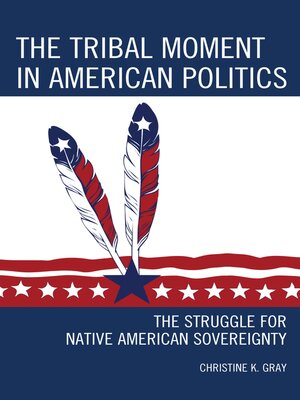The Tribal Moment in American Politics
ebook ∣ The Struggle for Native American Sovereignty · Contemporary Native American Communities
By Christine K. Gray

Sign up to save your library
With an OverDrive account, you can save your favorite libraries for at-a-glance information about availability. Find out more about OverDrive accounts.
Find this title in Libby, the library reading app by OverDrive.



Search for a digital library with this title
Title found at these libraries:
| Library Name | Distance |
|---|---|
| Loading... |
In the "tribal moment in American politics," which occurred from the 1950s to the mid- to late-1970s, American Indians waged civil disobedience for tribal self-determination and fought from within the U.S. legal and political systems. The U.S. government responded characteristically, overall wielding its authority in incremental, frequently double-edged ways that simultaneously opened and restricted tribal options. The actions of Native Americans and public officials brought about a new era of tribal-American relations in which tribal sovereignty has become a central issue, underpinning self-determination, and involving the tribes, states, and federal government in intergovernmental cooperative activities as well as jurisdictional skirmishes.
American Indian tribes struggle still with the impacts of a capitalist economy on their traditional ways of life. Most rely heavily on federal support. Yet they have also called on tribal sovereignty to protect themselves. Asking how and why the United States is willing to accept tribal sovereignty, this book examines the development of the "order" of Indian affairs. Beginning with the nation's founding, it brings to light the hidden assumptions in that order. It examines the underlying deep contradictions that have existed in the relationship between the United States and the tribes as the order has evolved, up to and into the "tribal moment."
American Indian tribes struggle still with the impacts of a capitalist economy on their traditional ways of life. Most rely heavily on federal support. Yet they have also called on tribal sovereignty to protect themselves. Asking how and why the United States is willing to accept tribal sovereignty, this book examines the development of the "order" of Indian affairs. Beginning with the nation's founding, it brings to light the hidden assumptions in that order. It examines the underlying deep contradictions that have existed in the relationship between the United States and the tribes as the order has evolved, up to and into the "tribal moment."







